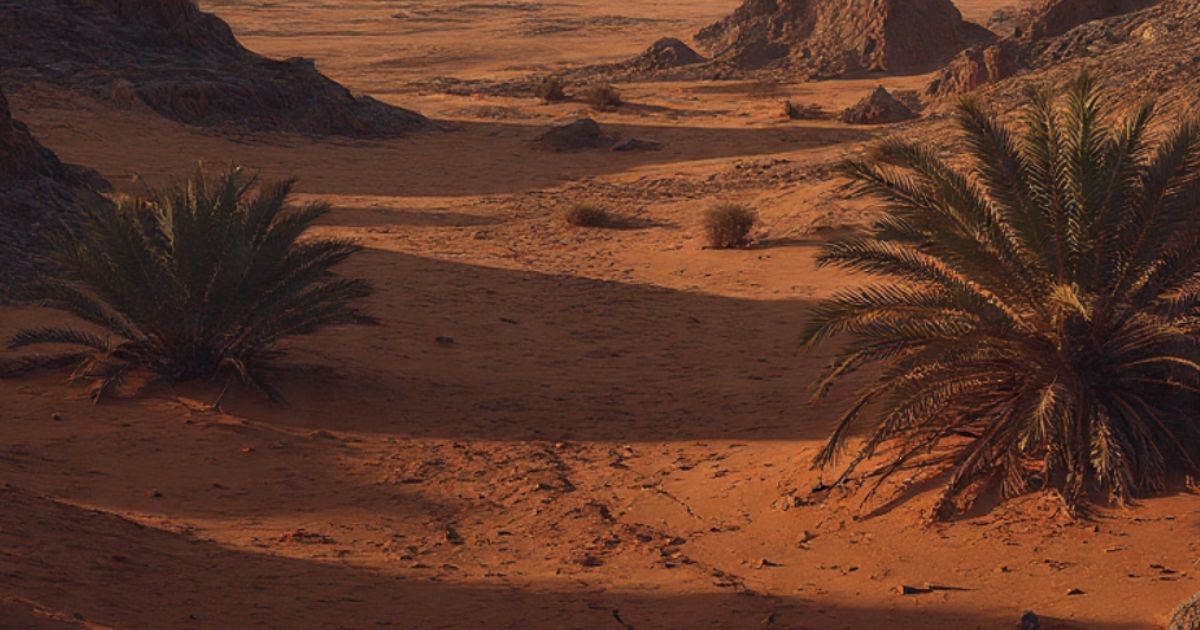The Desert Secret at Rawdat Khakh: A Divine Test Near Madinah
Table of Contents
The Desert Secret at Rawdat Khakh: A Divine Test Near Madinah
Imagine standing on a patch of earth where the air itself feels heavy with history. The sun beats down on a landscape of volcanic basalt stones, scattered across the desert floor. You are not in the central haram of Madinah, but about 25 kilometers to the west, in a place of profound historical significance. Today, this area might be known as Al-Ghusn or simply as a barren stretch of land, but its ancient name echoes with a pivotal story: Rawdat Khakh.
This is not just a geographical location; it is an open page from the biography of Prophet Muhammad (peace be upon him). Madinah is an open book, and wherever you turn, you find a connection to the Seerah. Here, at Rawdat Khakh, the connection is twofold: it is the stage for a dramatic episode of human weakness and divine wisdom, and it is the very ground where verses of the Qur’an were revealed—verses you may recite without knowing the sand beneath your feet witnessed their descent.
This is the story of a test of loyalty, a moment of panic, and a forgiveness that echoes through the ages. It asks you directly: What would you have done?
The Prelude to Conquest: A Secret in the Desert
The year is 8 AH (630 CE). The Prophet Muhammad (PBUH) is preparing for what will be one of the most significant events in Islamic history: the Conquest of Mecca. Secrecy is paramount. The Muslim army must move swiftly and unexpectedly to ensure a bloodless entry into the city that had persecuted them for so long.
But in the heart of one companion, a conflict raged. He is Hatib ibn Abi Balta’ah (RA), not a newcomer to faith, but a veteran of the Battle of Badr. The Prophet (PBUH) himself testified to the status of the Badr combatants, saying, “Do what you wish, for I have forgiven you.” Hatib carried that honor. Yet, he also carried a burden: his family—his children and his kin—were still in Mecca, vulnerable and unprotected.
Driven by this earthly fear, Hatib committed an act that shook the community. He wrote a secret letter addressed to the Quraysh leaders in Mecca, warning them of the imminent Muslim advance. His intention was not to betray the faith in his heart, but to secure a guarantee of protection for his family from his old allies among the Quraysh. He then entrusted this letter to a woman named Sara, a traveling servant, instructing her to conceal it and carry it to Mecca.
This is where Rawdat Khakh enters the narrative. The Prophet (PBUH), through the divine knowledge that was a proof of his prophethood, became aware of this betrayal. He did not confront Hatib directly. Instead, he dispatched a small, swift detachment of his most trusted companions: Ali ibn Abi Talib (RA), Al-Zubayr ibn Al-Awwam (RA), and Al-Miqdad ibn Al-Aswad (RA). His command was precise: “Go to Rawdat Khakh. There, you will find a woman carrying a letter from Hatib. Bring it to me.”
The Interception: A Lesson in Dignity and Investigation
Picture the scene these companions encountered. The rocky outcrops and sparse trees of Rawdat Khakh provided the perfect cover. They found the woman, Sara, and demanded the letter. Initially, she denied everything. “What letter?” she must have protested. But the companions were firm. They gave her an ultimatum: produce the letter, or they would be forced to search her.
This moment reveals a crucial point of Islamic etiquette, even in confrontation. The companions did not manhandle her. They stood their ground, insisting. It was then that Sara, realizing the gravity of the situation, requested something profound: privacy. She said, “Wait until I can conceal myself.” She had hidden the letter within the plaits of her hair. The companions honored her request. She retreated, retrieved the letter, and handed it over.
This moment is a powerful lesson for you today. Even in the pursuit of justice and security, the dignity of an individual—man or woman—is not to be trampled. The companions’ mission was critical, yet they adhered to a code of conduct that forbade unnecessary violation of a person’s privacy and honor.
The letter was brought to the Prophet (PBUH). He unsealed it and read Hatib’s warning to the Quraysh: an army “like a raging flood” was coming for them. The secret was out. The entire strategic advantage, and the safety of the Muslim army, had been jeopardized.
The Confrontation: Between Righteous Anger and Divine Mercy
The Prophet (PBUH) summoned Hatib. The atmosphere was tense. “O Hatib,” the Prophet asked, his voice likely filled with more sorrow than anger, “what caused you to do this?”
Hatib, exposed and afraid, gave his reasoning. “O Messenger of Allah,” he pleaded, “by Allah, I am a believer in Allah and His Messenger. I have not changed. But I am a man with no tribal affiliation among the Quraysh. I have family and children there, and I sought to buy their protection with this deed.”
He was caught in the ultimate test mentioned in the Qur’an: “Your wealth and your children are but a trial.” (Surah At-Taghabun, 64:15). His love for his family had clouded his judgment, leading him to commit an act that, on the surface, was undeniably treasonous.
It was at this point that the fiery temperament of Umar ibn Al-Khattab (RA) erupted. He could not bear this perceived betrayal from within the ranks of the elite. He stood and cried, “O Messenger of Allah! Let me strike the neck of this hypocrite! He has betrayed Allah, His Messenger, and the believers!”
This is the human reaction. It is the impulse for immediate, severe justice that many of you might feel reading this now. But the response of the Prophet (PBUH) is where the divine mercy shines. He looked at Umar and did not say, “You are wrong.” Instead, he reminded him of a higher truth. He said, “O Umar, how do you know? Perhaps Allah has looked upon the people of Badr and said, ‘Do as you please, for I have forgiven you.'”
The status of a Badri, the weight of that early sacrifice, had earned Hatib a reprieve that Umar’s righteous anger could not override. The matter was taken out of human hands and placed directly into the hands of the Divine.
The Eternal Lesson: Revelation at Rawdat Khakh
It was in the aftermath of this incident, in these very environs of Rawdat Khakh, that Allah revealed the foundational verses that now form the beginning of Surah Al-Mumtahanah (The Woman to be Examined).
“O you who have believed, do not take My enemies and your enemies as allies, extending to them affection [while they] have disbelieved in what came to you of the truth… And if you have sought a course against Me, then I am already aware. And whoever does it among you has certainly strayed from the soundness of way.” (Qur’an, 60:1)
These verses, which you can read today in your mus-haf, were sent down as a direct commentary on the events that transpired here. They are a permanent, divine verdict. They establish the principle of loyalty (Al-Wala’) to Allah and His believers and disavowal (Al-Bara’) from the enemies of the faith, even when personal interests tug at your heart.
Yet, the revelation also contains the subtle mercy that the Prophet (PBUH) showed. The verse “And I am already aware” is a powerful reminder. You cannot hide your intentions from Allah. Your secret whispers are as loud as your public declarations to Him. This should instill both fear and hope: fear of His judgment, and hope in His encompassing knowledge of your struggles and hidden pains.
Locating Rawdat Khakh Today: A Landscape of Reflection
Rawdat Khakh is situated approximately 25 kilometers west of the Prophet’s Mosque in central Madinah. This places it well outside the current urban sprawl, in a more remote and desert-like area. It is largely deserted today. The volcanic basalt stones that witnessed this drama are the same stones used to build many of Madinah’s historic and modern structures, creating a tangible link between the city’s past and present. Hardy, thorny plants dot the landscape, survivors in a harsh, beautiful environment. The name “Rawdah” itself implies an area of greenery, suggesting that in the past, it was a place with more vegetation and water, making it a natural stopping point on the route towards Mecca.
When you learn about a place like this, you are called to do more than just memorize a story. You are called to internalize its lessons.
- Your Loyalty is Your Identity: In a world full of competing allegiances—to family, tribe, nation, and ideology—your primary loyalty must be to the truth of your faith. This doesn’t mean abandoning your family, but it does mean never compromising core principles to appease them.
- Fear is a Test: Hatib’s fear for his family was real, but it led him to a wrong action. Your own fears can be a powerful test, pushing you toward compromises that seem justifiable in the moment but have grave consequences.
- Divine Mercy Overrides Human Judgment: The story is a stunning example of how divine mercy can intercede where human justice would have fallen short. It is a lesson in withholding final judgment and leaving room for Allah’s forgiveness.
- Madinah is an Open Book: To walk in Madinah or its surroundings is to walk through a living history. Every stone, every valley, has a story. Rawdat Khakh, though 25 km away, is one of its most powerful, yet quiet, chapters.
So, the next time you recite Surah Al-Mumtahanah, remember the rocky plain of Rawdat Khakh, west of Madinah. Remember Hatib’s internal struggle, the Prophet’s profound mercy, Umar’s fiery passion for justice, and the ultimate revelation that settled the matter for all time. Let it be a reminder that your faith will be tested, your loyalties questioned, but the final recourse is always to the All-Knowing, the Most Merciful. The desert of Rawdat Khakh stands as a silent, eternal witness to that truth.
Read on our website About The full Hostory of Masjid Nabawi
َApproximate Location of Rawdat Khakh on Google Maps

